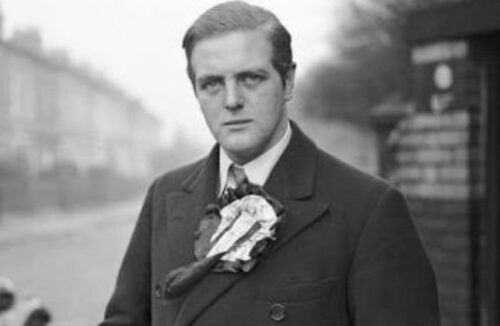Randolph Churchill Was No Chip off Winston’s Block

Like many great leaders, Winston Churchill “had a loveless childhood. He was ignored by his glamorous American-born mother, and most crushingly, cold-shouldered by his father, who barely spared his son a second glance.”
The great leader and statesman had human flaws, like all of us. A book review in the WSJ written by Tunku Vardarajan shed light on the great man in a book by Josh Ireland published by Dutton in 2021, “Churchill & Son.” Churchill’s flaw was that he doted on his son to the point where it excluded everyone else in the family.

“So Winston placed him on a pedestal–one from which Randolph was wont to spit at the world, or even urinate upon it, as he actually did once, upon the unwitting head of England’s Prime minister, who thought it was a passing shower.”
The title of the piece spoke volumes. “The Cage of Paternal Love.” Basically, Winston Churchill was obsessed with his son and what he meant for his legacy, and he spoiled him rotten and didn’t raise a great man, more, a man who few would have been proud of.
It was a cruel twist since Churchill’s own father only spent attention on his son putting him down and displaying “unfatherly contempt.”
Clementine, the American mother, resented Randolph who dad let get away with rudeness at the table and other unthinkable acts, generally his misbehavior in society.
Randolph Churchill, who would write most of a three-volume autobiography of his father, was known for his love of gambling in casinos and for two sad marriages. In the big shadow of his great father, Randolph, forced his wife to sell all of her wedding presents to pay off debts he’d run up during a ship voyage from Britain to Egypt.
Randolph, after a lifetime of failure, fell back on the support of his father when he gave him the ultimate writer’s gift–he let him write his biography. Randolph died early, he was only 57, and the final volume of the biography had to be finished by his wife.
Stories like this almost have a predictable ending, sadly, to be raised by a towering man like Churchill, how could poor Randolph not have come up short? The topic of fatherhood has always been rife with conflict and missed emotions.
